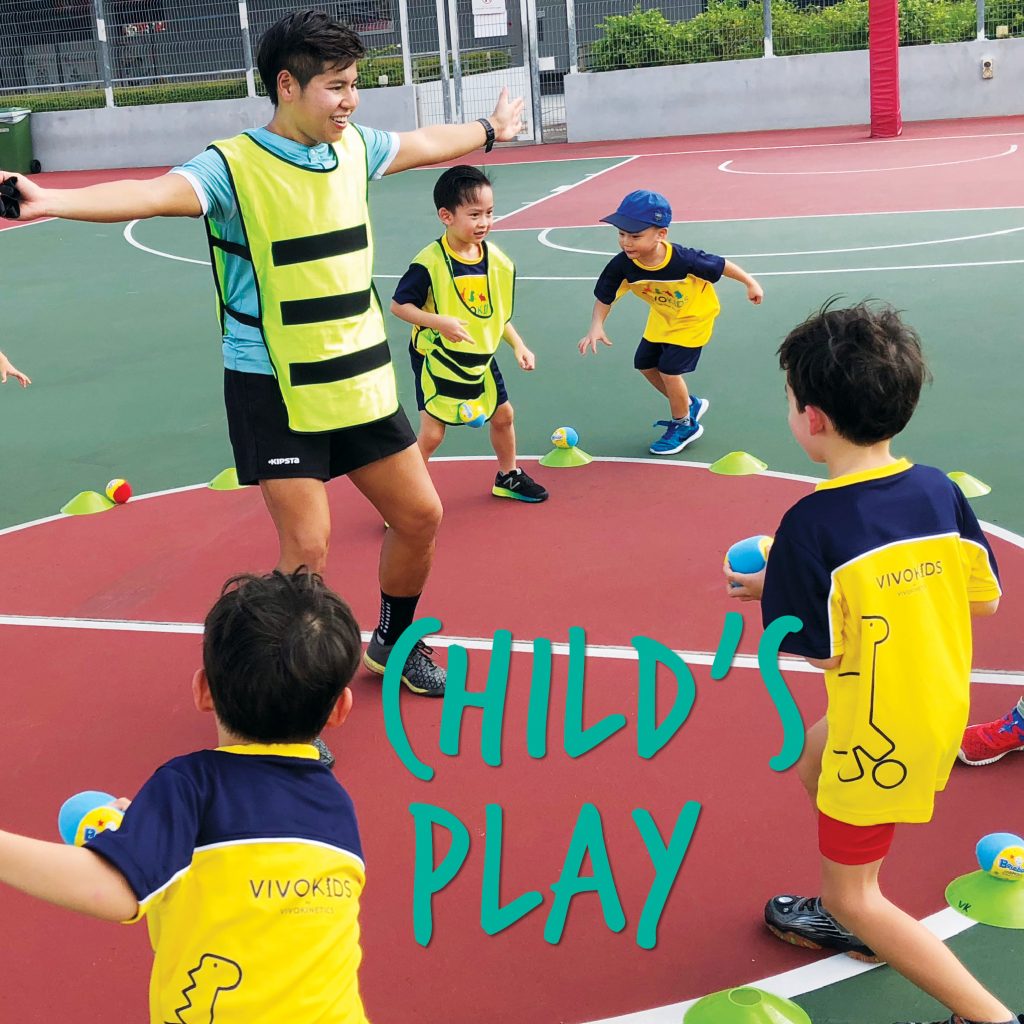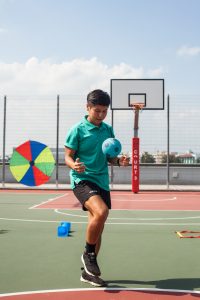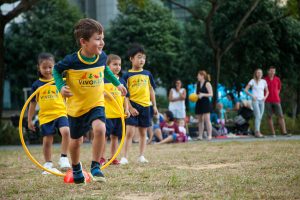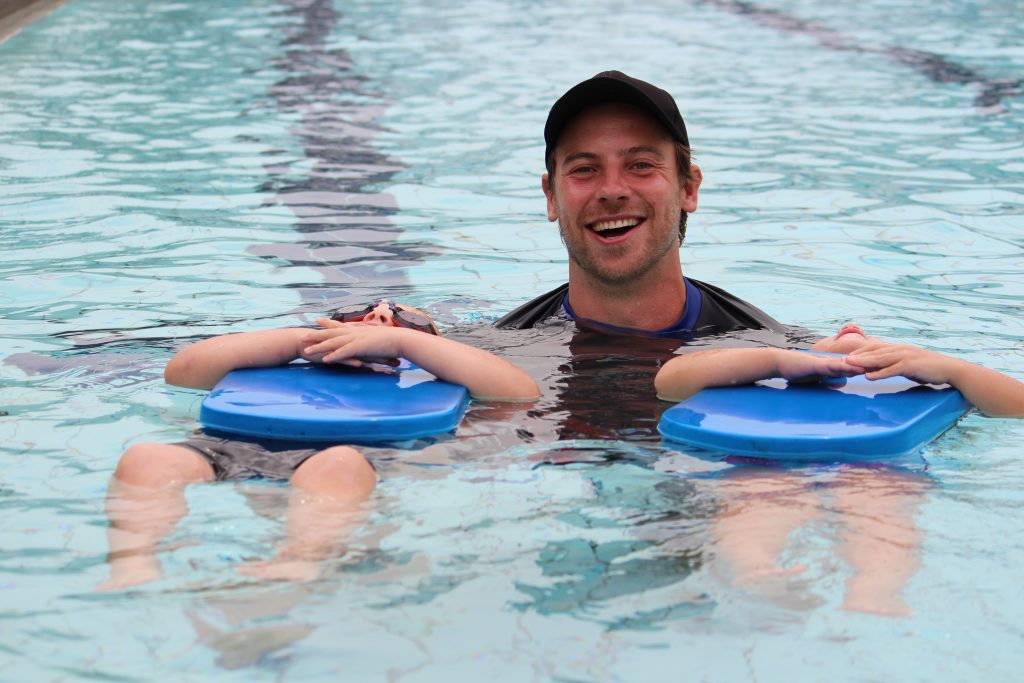
Vivian Eng plays rugby for the Singapore women’s team, is a former national soccer player, and a qualified preschool teacher. Eng teamed her twin passions by setting up VivoKids Singapore, a movement and multi-sport programme catering to kids aged 20 months to six years. Alongside introducing children to six different sports, they run holiday camps and sports-themed birthday parties for kids up to 12 years of age.
Why did you set up VivoKids?
Having coached for 10 years at various sport academies, and working in a preschool for a year, I felt that there was a lack of understanding of kids’ abilities and potential. I simply love kids, and I believe that sports are a great medium to reach out and bond with them. VivoKids was set up to offer the benefits of multi-sports to children of all abilities. Using age-appropriate equipment with fun, progressive games and drills, we hope kids will embrace an active and healthy lifestyle.
You’re so fit yourself! What’s your own sports background?
As a national athlete, I’ve played various sports in my younger years, specialising only in my late teens. My multi-sport exposure and background helped my development as a person and an athlete; and gave me the edge when I decided to pursue a new sport (rugby) in my late twenties. As a female athlete, who plays typical “boy sports” – soccer and rugby – I wanted to encourage more girls to be active and to engage in lifelong sports too. Sports is unisex and all girls should be given the same opportunities and visibility when it comes to sports!


What age is best to start introducing sports to your child?
When the child is still at infant/toddlers’ age you can expose them to a variety of movements, outdoor play – anything that involves both fine and gross motor skills is great. Once they hit 2.5 years and beyond, you can introduce them to sports, keeping in mind that it should be a wide variety, and that sessions should be age appropriate and fun.
What are the benefits of multi-sports training for kids?
Research has shown that the multi-sports approach helps build a solid physical development foundation as children get a chance to learn a wide variety of movement skills, which can be transferred to many sports. Exposing them to a wide range of movement also reduces the risk of over-use injuries and burnout. Sport helps kids develop active lifestyle habits and all-round physical conditioning such as flexibility, core stability, strength, stamina, power and speed. Apart from reaping the physical benefits, they sharpen up problem solving, communication, team work and working independently.
Why is sport great for kid’s socialisation?
Playing interactive group games develops social interaction and communication skills. Problem-solving or cognitive skills such as counting, identifying colours, or learning body parts, are stimulated during games. As they grow older, they get exposed to cooperation and friendly competition in sports, where they learn about winning and losing, teamwork, sportsmanship, integrity, resilience and perseverance.
What role can parents take in encouraging kids to participate in sports?
Children model their parents’ behaviour and tend to inherit their habits. To encourage long term sports participation, parents should lead by example, adopting a healthy and active lifestyle and participating in regular exercise or sports activities. As a family, choose to head out to cycle or hike together, explore the outdoors and nature.
To find out more head to vivokinetics.com
Kids Swim Tips

Sam Jackson, Managing Director of Marsden Swim School shares his tips for helping your child become a super swimmer in Singapore.
1 Learn to relax – a relaxed body is a buoyant body. Practice lots of back floats with your child, supporting them on your shoulder or gently supporting their neck. Let them feel how their breathing effects their buoyancy. The key is to relax all muscles… tense muscles are heavy!
2 Never hold your breath – Learning to exhale (blow bubbles) is about the most important skill one can learn. This can be encouraged from 4-6 months old. Practise long, slow exhalations, working towards coming out of the water for a short breath in.
3 Develop a balanced body, strong foundation – A balanced body in swimming is one that sits on top of the water. This is created through length and developing an effective kick. Practice lots of kicking on their backs, with straight legs. Ensure their neck is relaxed and encourage them to just look straight up!
4 Technique first – Teach a child to swim well and you are providing them a life skill. Emphasise strong technique across all strokes, distance should only be added if they can keep their technique sound.
5 Find a reputable swim school – Try find a school that teaches all the way through from babies to adults, from learn to swim to competitive squads, as kids will understand what is required at all stages of development. Also ensure they make it fun!
Marsden Swim School now offers lessons at the German European School which has an indoor Olympic sized temperature controlled pool. marsdenswimschool.com








